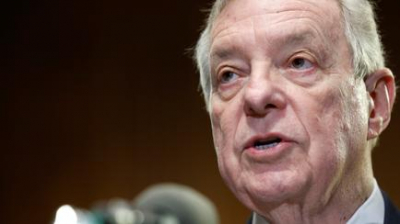Robert Axelrod (born May 27, 1943) is an American political scientist and professor emeritus at the University of Michigan. He is renowned for his contributions to the study of international relations, particularly in the realm of game theory and its application to conflict resolution.
Robert Axelrod
Born in New York City, Axelrod pursued his academic career with zeal, obtaining his Bachelor's degree in mathematics from the University of Chicago in 1964. He then went on to earn his Master's degree in economics in 1966 and his Ph.D. in political science in 1969, both from Yale University.
Axelrod's seminal work, "The Evolution of Cooperation," published in 1984, remains a cornerstone in the field of political science and beyond. In this groundbreaking book, Axelrod explores the emergence and sustainability of cooperation among self-interested individuals through the lens of game theory. He famously organized the Prisoner's Dilemma tournaments, which invited scholars from various disciplines to submit strategies for iterated versions of the game, leading to insights into the conditions that foster cooperation.
Throughout his career, Axelrod's research has delved into diverse areas such as international conflict and cooperation, complexity theory, and the evolution of norms. His interdisciplinary approach has earned him widespread acclaim and numerous awards, including the National Academy of Sciences Award for Behavioral Research Relevant to the Prevention of Nuclear War.
In addition to his scholarly contributions, Axelrod has served in advisory roles for government agencies and international organizations, providing insights into decision-making processes and strategic interactions. He has also been a dedicated educator, mentoring countless students and shaping the next generation of scholars in political science and game theory.
Beyond academia, Axelrod is known for his engaging writing style and ability to communicate complex ideas to a broader audience. He has authored several popular books, including "The Complexity of Cooperation" and "Harnessing Complexity," which offer accessible insights into the dynamics of cooperation and competition in various domains.
Robert Axelrod's enduring legacy lies not only in his groundbreaking research but also in his profound influence on how we understand human behavior in the face of conflict and cooperation. His work continues to inspire scholars and policymakers alike, guiding efforts to build a more cooperative and peaceful world.
Robert Axelrod, an esteemed American political scientist, has left an indelible mark on the field of international relations through his pioneering work in game theory and cooperation. His groundbreaking book, "The Evolution of Cooperation," and the Prisoner's Dilemma tournaments he organized have provided invaluable insights into the dynamics of conflict and cooperation among self-interested individuals. Axelrod's interdisciplinary approach, coupled with his ability to communicate complex ideas to a broader audience, has earned him widespread acclaim and numerous awards. His legacy extends beyond academia, as he has also played advisory roles for government agencies and international organizations. Axelrod's enduring influence continues to shape our understanding of human behavior in the realm of conflict and cooperation, guiding efforts to foster a more peaceful and cooperative world.
Robert Axelrod, an esteemed American political scientist, has left an indelible mark on the field of international relations through his pioneering work in game theory and cooperation. His groundbreaking book, "The Evolution of Cooperation," and the Prisoner's Dilemma tournaments he organized have provided invaluable insights into the dynamics of conflict and cooperation among self-interested individuals. Axelrod's interdisciplinary approach, coupled with his ability to communicate complex ideas to a broader audience, has earned him widespread acclaim and numerous awards. His legacy extends beyond academia, as he has also played advisory roles for government agencies and international organizations. Axelrod's enduring influence continues to shape our understanding of human behavior in the realm of conflict and cooperation, guiding efforts to foster a more peaceful and cooperative world.








Crypto fraudsters were able to sell real estate in Dubai after they were charged
Empowering Generations: Historic Investment in HBCUs Shapes Future Leaders
Ahmad Nawaf Al-Ahmad Al-Sabah: A Pillar of Kuwaiti Diplomacy and Leadership
André LeClair: A Visionary Sculptor Pushing the Boundaries of Contemporary Art
João Amorim: Rising Star in Football (Born 1991)
Moscow attack on Slovakia
Revolution in the Online World: The Promise of the New Website Accents
RUPABLIC: Unveiling the Next Frontier of Digital Entertainment